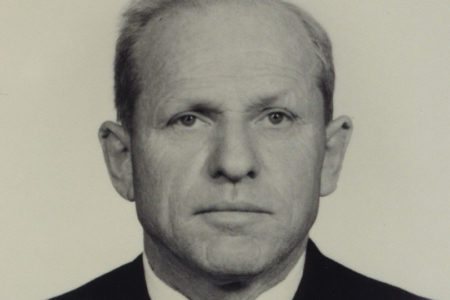Religion and Politics: Who’s in the Game
An interesting contest seems to be heating up as the world paves a road to a two-state solution to the Israeli-Palestinian conflict. The religious left has felt compelled to issue a series of documents slanted toward the Arab and Palestinian points of view, urging the powers that be to muscle Israel to accede to demands that will place Israelis in a virtually untenable position regarding their future security.
Signatories to these documents propose that they speak for the majority of evangelical Christians and, therefore, are in a position to pontificate on the direction the United States and other Western powers should take in (1) determining the future shape of the new Middle East and (2) correcting what they claim are the egregious malefactions of the Israeli government and its friends in the Zionist evangelical camp.
Their criticisms are based on the concept that Israel’s day is over, both biblically and historically. Consequently, Israelis have no more right to the land than their Muslim/Arab antagonists. Theologically, this position is popularly known as Replacement Theology, which claims that God’s promises to the heirs of Abraham, Isaac, and Jacob were conditional and therefore abrogated by Israel’s disobedience. So the church stepped in as the true “Israel of God” and possesses the spiritualized, redefined covenants of promise.
From this lofty, self-ascribed position, modern Israel is seen as a squatter on property it seized from militarily inferior Palestinians who should receive it back, so much so that Israel has been called an apartheid state equal to South Africa, which practiced legal racial segregation and suppressed human rights from 1948 to 1994.
Zionist Christians (those of us who believe the land promises to the Jewish people are irrevocable—biblically, historically, morally, and legally) are written off as an illegitimate theological mutation, unworthy of serious consideration. Furthermore, we are accused of being anti-Palestinian political meddlers who say, “Israel right or wrong.”
This point of view elicits a number of responses that are perfectly in order, considering the seriousness of the accusations.
First and foremost, on the matter of believing God’s biblical promises regarding Jewish rights to a homeland in Eretz Yisrael, we are guilty as charged. The birth of the church as God’s grace gift to the Gentiles did not contain a deed to property in the Middle East. Nor does it give Christian leaders, as some have wrongly concluded, a mandate to dictate what land is actually His land.
Second, the accusation that we are anti-Palestinian is totally without foundation. The Palestinians are caught in the middle of a conflict created and maintained by the manipulative mismanagement of their leaders who act in their own behalf, disregarding the needs of their people. The most unfortunate are Palestinian Christians. Witness the exodus of Christian Arabs to the West and Europe in recent years. Some have gone so far as to blame this evacuation on Israel and economic oppression and despair caused by the continual “occupation.” Hardly mentioned is the fact that the Christian exodus from the Middle East is a response to the Islamic drive to exterminate Christians and Jews from the region.
Criticism of Israel’s 8,000 settlers in Gaza was a popular theme for many years. If the Jewish infiltrators were eliminated from Gaza, the mantra went, Palestinians could elevate their social and economic status, which would change their lives and lifestyles. So the Jews left, at great cost. The result? Gaza became a staging area for terrorists; Hamas rules the street; and Christian Arabs are hunted, assassinated, and forced to find safe haven somewhere other than Gaza.
With regard to the charge of meddling in politics, let it be said that Christian Zionism is not primarily a political action movement. It is not the legitimate province of outsiders, however benevolently motivated, to dictate the political policy of a foreign government. The Israeli people are perfectly capable of determining the course their nation should pursue. That said, there is a point where politics and biblical, prophetic realities converge. This is not a matter of dictation but observation; and there is no doubt that current events, when compared with scriptural predictions, help us discern where we are and where history is heading.
For Israelis and the Jewish state, the issue is survival within secure, recognized borders. And for Palestinians, Christians, and others, it is the right to pursue productive and tranquil lives without fear of radical Islamist discrimination.






